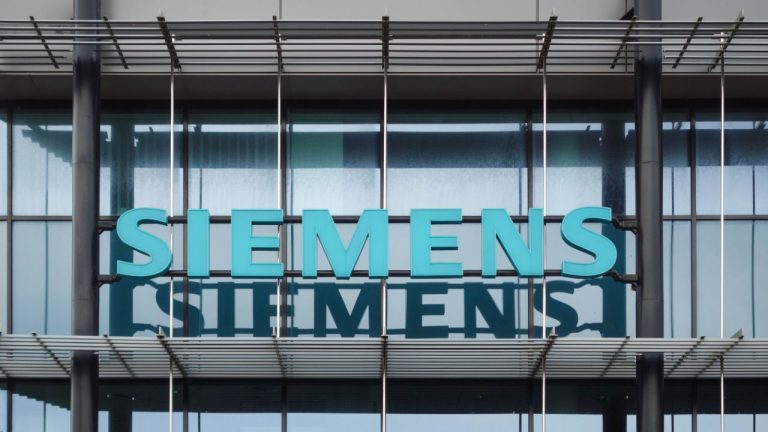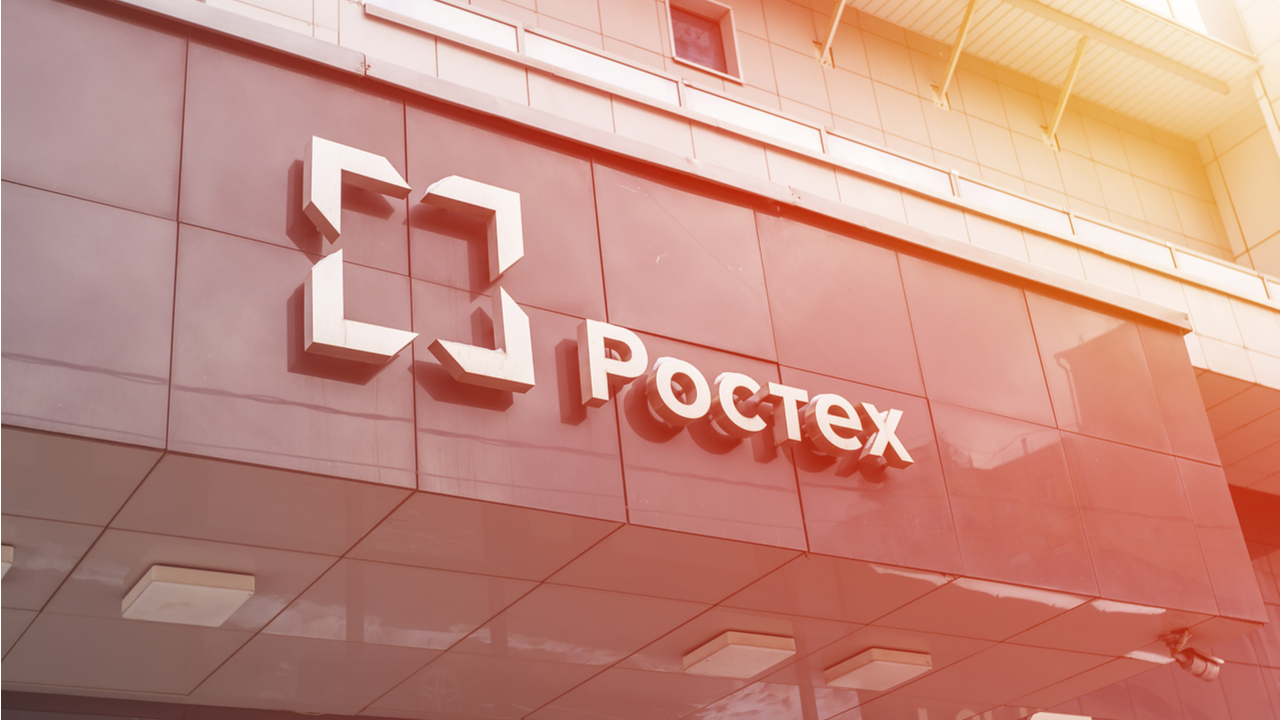
The initiative will initially focus on tokenized deposits with the HKMA providing support to local banks for trials.
The Hong Kong Monetary Authority (HKMA) has launched an initiative to assist banks in adopting distributed ledger technology.
On Jan. 8, the Hong Kong central bank announced the launch of its “Supervisory Incubator for Distributed Ledger Technology,” which aims to help banks safely implement distributed ledger technology into their operations and maximize the benefits.
“As the banking industry continues to evolve, it is essential that we provide a supportive environment for innovation to thrive,” said Arthur Yuen, deputy chief executive of the HKMA.
 The Hashgraph Association and Blade Labs have partnered to drive digital transformation using the latter’s conventional and Shariah-compliant digital securities platforms. The CEO of Blade Labs described the Hashgraph Association as a strategic investor that enables the company to integrate its cutting-edge digital asset solutions with more businesses in the Middle East and beyond. Integrating […]
The Hashgraph Association and Blade Labs have partnered to drive digital transformation using the latter’s conventional and Shariah-compliant digital securities platforms. The CEO of Blade Labs described the Hashgraph Association as a strategic investor that enables the company to integrate its cutting-edge digital asset solutions with more businesses in the Middle East and beyond. Integrating […]
A new report from the Global Financial Markets Association says regulators need to take distributed ledger technology more seriously.
Around $100 billion a year or more could be saved if distributed ledger technology (DLT) was used in traditional markets, claims a new report from the Global Financial Markets Association (GFMA).
In a May 16 report, the traditional finance sector lobby group, along with international consulting firm Boston Consulting Group (BCG) and others, asked both regulators and traditional financial institutions to take a more serious look at the upsides of the technology.
A distributed ledger is an umbrella term for a system that records transactions and digital information. A blockchain is a specific type of distributed ledger.
“Distributed ledger technology holds promise for driving growth and innovation,” said Adam Farkas, GFMA’s Chief Executive. “This potential should not be ignored or prohibited where regulatory oversight and resiliency measures already exist.”
According to the report, using distributed ledgers to streamline collateral processes in derivatives and lending markets could see an additional $100 billion saved.
Additionally, utilizing smart contracts to automate and shore up processes of clearing and settlements could reduce overheads by $20 billion each year.

Overall, the systems that stand to gain the most from implementing DLT at some level were clearing and settlements, followed closely by custody and asset servicing.
According to analysis from BCG, primary markets and secondary trading were less likely to witness serious impact from the tech, however tokenization in these markets could see better risk mitigation and deeper liquidity.
DLT is beginning to witness heightened levels of adoption internationally. On March 23, the European securities clearing firm Euroclear — which claims to have over $40.9 trillion (37.6 trillion euros) in custodied assets — announced that it would be looking to integrate DLT into its settlements process.
Related: China launches national blockchain center to train half a million specialists
There is, however, still plenty of room for improvement when it comes to implementing DLT into pre-existing financial systems.
In November last year, the Australian Securities Exchange abandoned its plans to update its 25-year-old clearing and settlements system with DLT, leaving a $170 million hole in its books.
The GMFA report comes just two months after Citi investment bank claimed that the global market for blockchain-based tokenized assets could reach a staggering $5 trillion by 2030.
Magazine: How to control the AIs and incentivize the humans with crypto
 Blockchain technology can help solve current issues with settlements, according to the deputy chief executive of Sberbank. Russia’s largest bank is working with other financial institutions to develop blockchain-based payment applications, the banker revealed. Sberbank Sees Solution to Russia’s Troubles With Settlements in Blockchain With major Russian banks disconnected from the main global interbank payment […]
Blockchain technology can help solve current issues with settlements, according to the deputy chief executive of Sberbank. Russia’s largest bank is working with other financial institutions to develop blockchain-based payment applications, the banker revealed. Sberbank Sees Solution to Russia’s Troubles With Settlements in Blockchain With major Russian banks disconnected from the main global interbank payment […]
Universities in the U.K., including Cambridge, Imperial, Edinburgh, Oxford and University College London, offer blockchain-related programs.
Universities in the United Kingdom have started offering cutting-edge research programs, courses and practical experience in various aspects of blockchain technology, including cryptocurrencies, smart contracts, privacy, security and scalability. Students who graduate from these programs will be well-equipped with the knowledge and skills necessary to become leaders in the field of blockchain technology and drive innovation and adoption in various industries.
Here are top five universities to study blockchain in the United Kingdom.
The University of Cambridge is a public research university located in Cambridge, and its Cambridge Centre for Alternative Finance (CCAF) is a leading research center in the field of alternative finance, which includes research on blockchain and cryptocurrencies.

The CCAF conducts research on various aspects of blockchain technology, including adoption, regulation and policy. Postgraduate students at Cambridge can take blockchain courses such as “Distributed Ledger Technologies: Foundations and Applications” at the department of computer science and technology. In this 16-hour course, concepts such as consensus mechanisms, smart contracts, Bitcoin (BTC) and its variants, Ethereum and other permissionless decentralized ledger technologies are covered.
In addition, the Cambridge Digital Assets Program is a multi-year research program that intends to shed light on the quick digitalization of assets and value-transfer systems. It builds on the solid foundations of the CCAF’s prior work and current ties. It is centered around three workstreams, including:
Imperial College London is a public research university, and its Centre for Cryptocurrency Research and Engineering is a leading research center in the field of cryptocurrency and blockchain technology.

Imperial College London offers a Master of Science in Financial Technology (fintech) course structured into pre-study modules, foundation modules, core modules, electives and a project. The modules cover topics such as “Applications of R and Databases for Finance,” “Data Structures and Algorithms with Python,” “Accounting and Corporate Finance,” “Financial Econometrics in R and Python,” “Asset Allocation and Investment Strategies,” and “Text Mining for Economics and Finance.”
All students beginning the Master of Science in Financial Technology program should have a strong background in probability, calculus, matrix algebra and real analysis. The program is designed to equip students with a comprehensive understanding of quantitative and analytical skills, including coding and programming capabilities.
In addition, the college also offers a 12.5-hour (spread over six weeks) masterclass on “Blockchain Technology: Foundations, Applications, and Implications.” The curriculum covers topics such as cryptography, smart contracts and decentralized finance (DeFi).
The University of Edinburgh is a public research university located in Edinburgh, Scotland. The university is renowned for its research and teaching in a wide range of subjects, including science, engineering, humanities and social sciences.

Within its School of Informatics, the University of Edinburgh operates a Blockchain Technology Laboratory (BLT) that is devoted to conducting research and developing blockchain technology. To create and test novel blockchain technologies, the BLT works with business partners, governments and academic institutions.
In addition to research, the University of Edinburgh offers several courses related to blockchain technology, including an undergraduate course module called “Blockchain and Distributed Ledgers,” which covers the fundamental concepts of blockchain technology, including consensus protocols, cryptography, smart contracts and game-theoretic analysis of blockchain protocols.
The university’s Master’s in Finance, Technology and Policy aims to equip students with diverse skill sets in machine learning, principles of economics and big data analysis. And its four-year doctoral program in fintech in collaboration with companies allows students to undertake extensive applied research with commercial relevance.
The University of Oxford is a world-renowned public research university located in Oxford, England. It is known for its excellence in research and teaching across a wide range of disciplines, including science, engineering, humanities and social sciences.

The University of Oxford offers a program in blockchain strategy, which is part of the Oxford Blockchain Strategy Program. The course is intended for executives and business owners who are curious about how blockchain technology might affect their companies. The course covers subjects, including blockchain protocols, decentralized governance, the blockchain ecosystem and regulation.
University College London (UCL) is a public research university located in London, England. UCL is a member of the prestigious Russell Group of research-intensive universities in the U.K. and is considered one of the world’s leading multidisciplinary universities.

The Blockchain Executive Education Program, an eight-week executive course offered by UCL, aids business leaders, innovators, regulators and public policy leaders in developing a thorough understanding of blockchain business models, including their advantages and disadvantages.
Additionally, it provides an Master of Science in Financial Technology that emphasizes developing quantitative finance abilities and the application of emerging technologies in financial services, as well as how new digital business models in financial services are affecting company practises.
The Emerging Digital Technologies program at UCL can assist individuals looking to pursue jobs focused on new technologies in challenging corporate settings. Participants in a range of core modules will gain practical experience with technology in fields such as data science, blockchain technology and information management systems.
 German conglomerate Siemens has for the first time issued a blockchain-based digital bond denominated in euros. In an announcement, the corporation highlighted the benefits of using blockchain, including the opportunity for direct sale to investors. Digital Bond Issued Under Germany’s Electronic Securities Act The largest industrial manufacturer in Europe, Siemens, announced it has become one […]
German conglomerate Siemens has for the first time issued a blockchain-based digital bond denominated in euros. In an announcement, the corporation highlighted the benefits of using blockchain, including the opportunity for direct sale to investors. Digital Bond Issued Under Germany’s Electronic Securities Act The largest industrial manufacturer in Europe, Siemens, announced it has become one […] According to a Ripple Labs spokesperson, the distributed ledger company is interested in learning about the bankrupt crypto lender Celsius and its assets. When Ripple’s spokesperson was asked if the blockchain firm was interested in acquiring Celsius, the company declined to say. The news follows Celsius customers begging the bankruptcy court to release funds over […]
According to a Ripple Labs spokesperson, the distributed ledger company is interested in learning about the bankrupt crypto lender Celsius and its assets. When Ripple’s spokesperson was asked if the blockchain firm was interested in acquiring Celsius, the company declined to say. The news follows Celsius customers begging the bankruptcy court to release funds over […] The World Gold Council’s (WGC) head of global sales and regional CEO, Joe Cavatoni, explained on Friday that he believes the gold industry will integrate with blockchain technology in order to “help the industry standardize reporting.” Cavatoni spoke about the London Bullion Market Association’s (LBMA) and WGC’s Gold Bar Integrity Programme (GBI) which aims to […]
The World Gold Council’s (WGC) head of global sales and regional CEO, Joe Cavatoni, explained on Friday that he believes the gold industry will integrate with blockchain technology in order to “help the industry standardize reporting.” Cavatoni spoke about the London Bullion Market Association’s (LBMA) and WGC’s Gold Bar Integrity Programme (GBI) which aims to […] A Russian university is ready to test its blockchain-based analogue to the global payment messaging network SWIFT, from which Russian banks were cut off as part of Western sanctions. The developers say their system would not allow the disconnecting of countries and banks. Russian Developers Create SWIFT Substitute Using Blockchain Experts from the Competence Center […]
A Russian university is ready to test its blockchain-based analogue to the global payment messaging network SWIFT, from which Russian banks were cut off as part of Western sanctions. The developers say their system would not allow the disconnecting of countries and banks. Russian Developers Create SWIFT Substitute Using Blockchain Experts from the Competence Center […] Rostec, the Russian manufacturing and technology conglomerate, has developed a system allowing the processing of international settlements and storage of digital currency. The blockchain-based platform has been announced as an alternative to SWIFT, which is unavailable for some Russian banks. Rostec Employs Distributed Ledger Technology to Substitute SWIFT Russian state-owned corporation Rostec has built a […]
Rostec, the Russian manufacturing and technology conglomerate, has developed a system allowing the processing of international settlements and storage of digital currency. The blockchain-based platform has been announced as an alternative to SWIFT, which is unavailable for some Russian banks. Rostec Employs Distributed Ledger Technology to Substitute SWIFT Russian state-owned corporation Rostec has built a […]